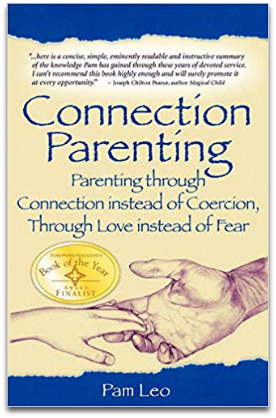 When my first born was a toddler and started testing limits, I didn’t have my parenting and discipline strategy completely sorted out.
When my first born was a toddler and started testing limits, I didn’t have my parenting and discipline strategy completely sorted out.
My sweet and calm child had learned to shake his head no, stomp his foot when something wasn’t to his liking and throw his dinner down to feed the dog instead of eating it himself.
My friends and even complete strangers often complimented me on what a well behaved toddler my son was. But as a new mother, I found some of his behaviors pushed my buttons.
Can I confess something to you?
I was convinced that some of my toddler’s behavior was bad and needed to be stopped right away. Especially because I had another baby on the way and didn’t want to have out of control kids.
Thinking the problem was my discipline style, I started counting, using warnings and time outs when behaviors didn’t meet my expectations.
That turned out to be a really bad choice for us.
Instead of better behavior from my son and a calmer home, we ended up with more tears for all of us.
Counting and control didn’t help my son learn new and better behaviors. My attention was always focused on what was going wrong instead of on all the wonderful things my son was capable of doing.
Our strong bond had been disrupted and I knew in my heart I needed to repair it.
Special Time was just what we needed.
Special time is a pro-active parenting tool aimed at filling up your child’s “feel good” cup and at the same time it strengthens your parent-child bond.
 Pam Leo, author of Connection Parenting: Parenting Through Connection Instead of Coercion, Through Love Instead of Fear explains that a strong parent-child bond is necessary for optimal development and the most powerful tool for influencing children’s behavior.
Pam Leo, author of Connection Parenting: Parenting Through Connection Instead of Coercion, Through Love Instead of Fear explains that a strong parent-child bond is necessary for optimal development and the most powerful tool for influencing children’s behavior.
“When children feel well, they behave well.”
~ Pam Leo
The Purpose of Special Time
Special time is a very positive and focused way to give children attention. It helps your child feel loved, safe and happy.
This is a time to turn off screens, dial down the multitasking and be fully present with your child. Follow your child’s lead and enjoy their company. Don’t worry about teaching or fixing any behaviors that need to be addressed.
When I started special time with my son, my aim was to rebuild our strong connection and to have fun together.
My son wanted to fly like an airplane, dance together and generally be silly. Together, we played monster chase, pretend wrestling and dinosaurs. He liked being big and powerful and I pretended to be very afraid. Other times my son pretended to fall into an abyss and I bravely waded through hot lava or the jungle to save him.
 In just ten minutes we could rescue pirate treasure from the bottom of the ocean and defeat all the bad guys in the entire world. We were a strong, unbeatable and amazing team.
In just ten minutes we could rescue pirate treasure from the bottom of the ocean and defeat all the bad guys in the entire world. We were a strong, unbeatable and amazing team.
Doing daily special time created so much laughter and closeness, it helped us work well together all day long.
I didn’t need to rely on time outs or warnings because I had shown my son in the most loving way that we were a great team.
Special time is a chance for bringing laughter and playfulness into your relationship.
At the same time you are actively strengthening your bond with your child and creating a bridge that you can count on when your child’s behavior is off track.
My son learned through our playful interactions that he could count on me, no matter what.
When I needed to set a boundary, he trusted me, just like when we defeated the aliens, monsters and time travelers. Feeling well-loved and respected, my son was happy to be cooperative.
Positive and loving attention from you is the most powerful discipline strategy because it speaks to your child’s heart and mind at the same time.
A daily dose of purposeful connection lets you really see and acknowledge your child and let them know that they matter to you. That you love and respect them. That you want to be their ally.
Your Checklist for Starting Special Time
1. Just Give It a Go
When you think you might have ten minutes to spend with your child without any distractions, just go ahead and invite your child to play with you. You don’t have to have an elaborate plan or set an agenda at all.
Tell your child that for ten minutes you are there to play together and do whatever they want to do.
Follow your child’s lead and have a good time. Unless your child is asking you, you don’t have to explain what special time is for now. Be open to sillyness or playfulness and just give it a go.
Don’t worry if it’s not very creative or imaginative either, every child has their own style of play and that’s totally fine.
2. Set the time together
Have your child help you set a timer and tell them that until the timer rings you will be there to play with them.
Let the timer be in charge and don’t check your phone or watch so you can get fully immersed in the play.
3. Let your child Lead
 Tell your child that they get to be the boss of playtime and that you are there to play in any way they want with them.
Tell your child that they get to be the boss of playtime and that you are there to play in any way they want with them.
Sometimes children want to see how far they can push you into doing certain things. This is only okay up to the point where your own boundaries and needs are still respected.
You may choose to emphasize the word “PLAY” so that it’s clear that you aren’t going to be eating Nutella out of a jar for 10 minutes or poking the dogs. Bring along lots of cooperation, listening and flexibility.
How often do you wish that your child would be flexible, listen to you and cooperate with your requests?
Special time is a perfect way to model these exact qualities to your child. Play along, don’t restrict yourself unless something is actually dangerous or disrespectful.
If your child wants to make fart noises or asks you to shake like a silly monkey, embrace the silly moments. The timer will ring soon enough and let you resume your regular activities.
4. One on One is what makes the difference
Especially in families with siblings, time alone with a parent can feel extra special.
If you have more than one child, you may need to get really creative about how to implement special time but it’s well worth it.
“Special time is priceless because it symbolizes the parent’s unconditional love for the child.”
~ B.J. Howard
Special Time Can Release Big Feelings
When special time is over, your child might cry or become upset. This is normal behavior and a sign that your child is feeling bonded to you and releasing many feelings.
It’s a good idea to plan 10 minutes for special time and maybe another 5 minutes at the end to listen to any feelings or help your child transition to a different activity.
Boundary Bonus
If you are consistent with how you start and end special time using a timer you are automatically showing your child how you can set and hold clear boundaries.
This is good practice for setting other boundaries in a calm and consistent manner.
Why Special Time is Special
 You are what makes special time special.
You are what makes special time special.
Special time doesn’t require you to purchase toys, gadgets or spend any big money. Giving your child your undivided attention and following your child’s lead in play for ten or fifteen minutes is all that is needed. This time is special precisely because it is short and something you can commit to doing consistently with your child.
“You are the Special Sauce in Special Time. You have the power to help your child feel felt, feel connected, feel content in the moment, with all she ever needed right there beside her. You.”
The 2-Minute Action Plan for Fine Parents
For our our quick contemplation questions today, let’s try these:
- Did your parents ever take the time to be fully present and engage in play with you? Maybe a pillow fight or chase in the park? What kind of memory does that bring up for you?
- How often do you make time to be with your child, distraction free and just play together? Does this have a positive effect on your family’s mood?
- Imagine you could make your child feel good about themselves while at the same time strengthen your bond in just ten minutes a day? Is it worth making effort knowing how powerful this experience is for your child’s development?
The Ongoing Action Plan for Fine Parents
Over the next week try this:
- Give special time a go, at least every other day for a week.
- Plan ahead: Mark your calendar with a 15 minute window of time just for your child.
- Reflect: How will you be sure to focus just on your child in that time?
- Keep in Mind: Your goal is to connect with your child’s heart and mind, let them lead the way and don’t worry about fixing any behaviors during special time (unless it’s a safety concern)
- Use special time as a way to practice setting clear and calm boundaries by respecting the timer and stopping special time when it rings.

Leave a Reply